Politicians debate Swiss involvement with EU
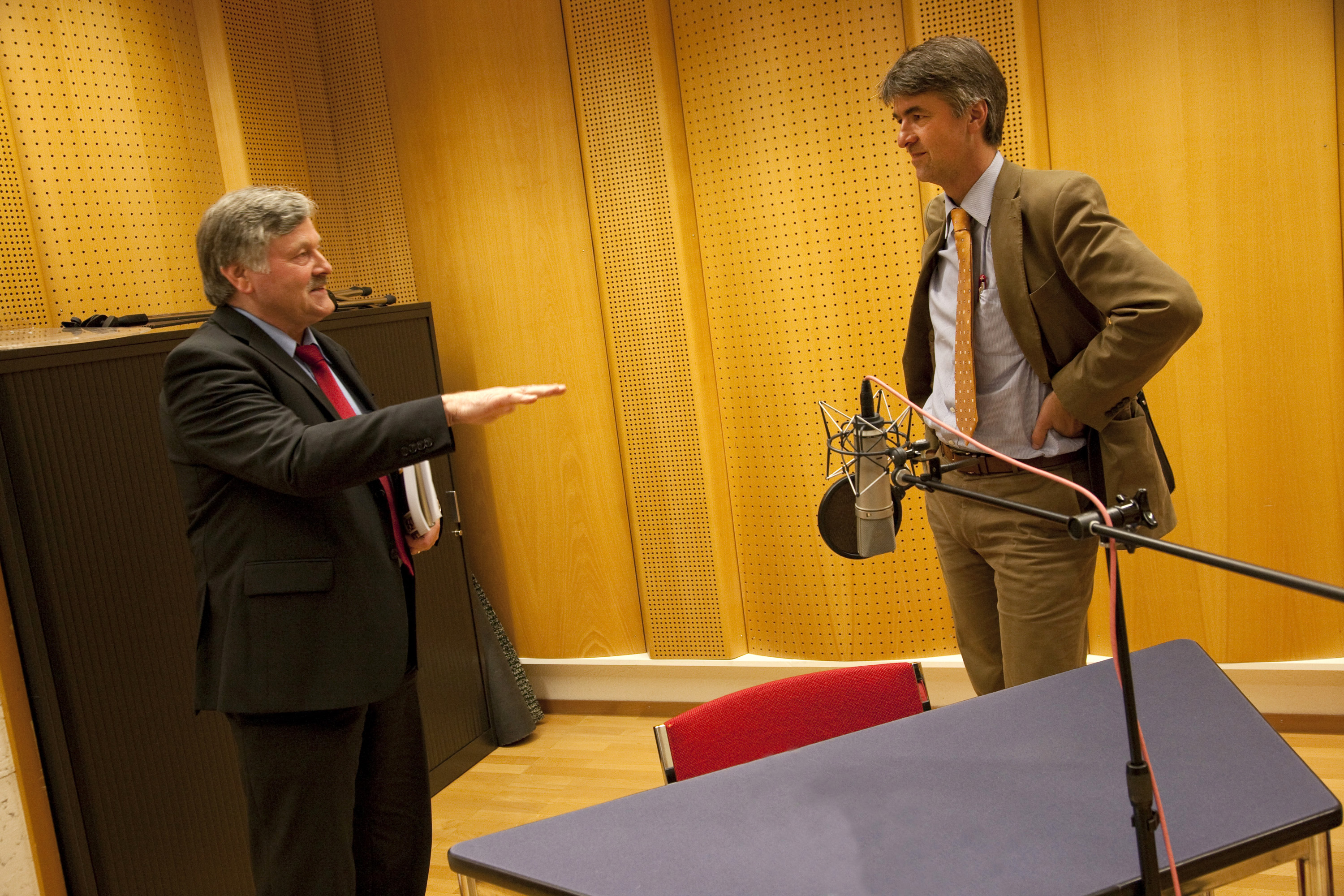
What should Switzerland do about the European financial crisis? swissinfo.ch canvases two parliamentarians with highly opposing views.
The European Union earlier this month agreed a plan to support the euro amid fears the Greek debt crisis could spread. Greece received the first part of an EU and International Monetary Fund (IMF) loan to prop up its economy this week.
Alec von Graffenried, a member of the Green Party, is a leading member of the New European Movement Switzerland. He is in favour of Switzerland joining the European Union.
Hans Fehr represents the rightwing Swiss People’s Party. As the director of the Campaign for an Independent and Neutral Switzerland, Fehr insists that the Swiss stay out of the EU.
swissinfo.ch: Austria has suggested that Switzerland should help bail out the euro, but isn’t Switzerland showing enough solidarity with its IMF participation and its intervention to support the euro?
Alec von Graffenried: These are the right measures at the right time. But it’s also important to have something in reserve.
Hans Fehr: Switzerland is doing more than enough with its buying up of billions of euros. Unfortunately, we are also a member of the IMF, contributing around SFr6 billion ($5.2 billion). Our solidarity is also evidenced by the AlpTransit project, which is costing us more than SFr30 billion.
swissinfo.ch: Germany was reluctant to help Greece. How would you rate EU solidarity?
A.v.G.: From a historical perspective, this solidarity has existed for a long time. Greece, Spain and Portugal are today’s favourite holiday destinations. But 40 years ago, these countries were military dictatorships that did not respect human rights.
The greatest merit of the EU and a unified Europe is that the people there have been freed and can now live in safe democracies. In addition, they can participate as fully-fledged members of the European community of states.
In 1970, very few people would have bet on such a prospect in 2010. This positive development is also thanks to the historical solidarity between Europe’s northern and southern nations.
H.F.: I beg Mr von Graffenried not to paint such a flowery image of the historical facts. I doubt that the EU’s vocation was as a peace institute for Europe.
It’s more likely that people had simply had enough after the Second World War. Then they gradually built up democracies – and part of democracy is that you don’t go to war against each other.
Today’s crisis shows that the EU is an unsound structure because it forces completely different economies under one roof.
Monetary union wasn’t the result of economic considerations, but a purely political decision. Politics was given priority over the market, and now reality is setting in. In Switzerland we have to operate niche politics – with low taxes, less bureaucracy and more quality.
A.v.G.: Of course the crisis is a major stress test resulting in a lot of tension, and there are very justifiable reasons for that. One could say that the system was imperfect, if you consider its excesses.
What also bothers me is that the Greeks are doing quite well despite their crisis. Evidently there’s a huge underground economy. To demand solidarity during such a phase is putting too much strain on the system. Corrective action is needed, no doubt about it.
swissinfo.ch: In the eurozone, the central banks are not allowed to run their own monetary policies. Nobel Prize winner Paul Krugman says this is a big danger for EU nations. Surely Switzerland is better off on its own?
H.F.: That’s right. What I’ve noticed is that those in favour of EU membership keep saying that every crisis has made the EU stronger, and that the system works because of the high level of solidarity among members.
But what’s missing today is the autonomy of Greece, Spain and Portugal when it comes to running their own monetary policies. Greece should urgently devalue its currency, but that’s not possible on account of the rigid system.
Britain and Switzerland have gone down the more clever route. We can influence economic activity through vigilant national banks.
A.v.G.: It’s true that earlier, the Greek drachma would have been devalued. But with the euro the rules of play have changed, and that goes for Greece as well.
The result of this crisis will be the realisation that the time for integration was not ripe. And that the EU needs stronger centralisation to take the economic measures needed to offset such disparities.
If you want to keep the euro, there is no alternative but to press on with integration. Giving the single currency up now is not really an option.
H.F.: Building up the system even further sounds nice. But it means yet more rules and regulations.
swissinfo.ch: Switzerland has survived the crisis better than its European neighbours. Did it do the right thing in not joining the EU and European Economic Area?
A.v.G.: The situation has really improved for Switzerland since it concluded the bilateral accords. In the 1990s the Swiss economy was not so healthy.
The big question now is how we should behave. We shouldn’t be malicious when our neighbours get into trouble. Crises are a cause for great concern, especially when they are on our doorstep or even in our own home.
We should contribute to improving the system. Both the euro and the economic crisis have been caused by everyone living beyond their means – Switzerland included.
H.F.: We have to do our homework, but this doesn’t really have much to do with the EU at the moment. Switzerland is doing well in terms of salaries, social security, unemployment, economic power, strength of the Swiss franc etc.
But we have to make sure that we protect our freedom, right to political self-determination, national sovereignty and independence. These foundations of direct democracy are key to our success.
At the same time, we should also be open. Not only towards Europe, but also towards China, Japan and India, which have big markets. We shouldn’t just only look towards Brussels, but towards the whole world.
Olivier Pauchard and Renat Künzi, swissinfo.ch
Lawyer Alec von Graffenried was a top official in Bern’s cantonal administration from 2000-2007. He was elected to the House of Representatives in 2007 for the Green Party. He sits on the House’s Committee for Legal Affairs.
Von Graffenried is president of the Bern section of the New European Movement Switzerland.
Hans Fehr, aged 63, is a member of the rightwing Swiss People’s Party. He sat in Zurich’s cantonal parliament from 1991-1996. He was elected to federal parliament, to the House of Representatives, in 1995.
He is the director of the Campaign for an Independent and Neutral Switzerland.
European nations have launched a euro-support plan, hoping to calm markets wary that Greece’s rescue may be the first of several, expensive measures to shore up other economies.
The €750 billion funding comprises €500 billion from eurozone countries and €250 billion from the IMF (existing funds that have now been directed as loans for struggling EU countries). Funds would only be dispersed if recipient countries undergo a strict diet of reforms.
Greece has announced austerity measures, which have led to public outrage and clashes. The first tranche of the country’s bailout €110 billion loan was received on Tuesday.
The first rescue of a member of the 16-nation bloc aims to stem a debt crisis that has shaken markets, dented confidence in the euro and begun to spread to fellow eurozone weaklings Portugal and Spain. Berlin’s hesitancy has fuelled market panic.

In compliance with the JTI standards
More: SWI swissinfo.ch certified by the Journalism Trust Initiative

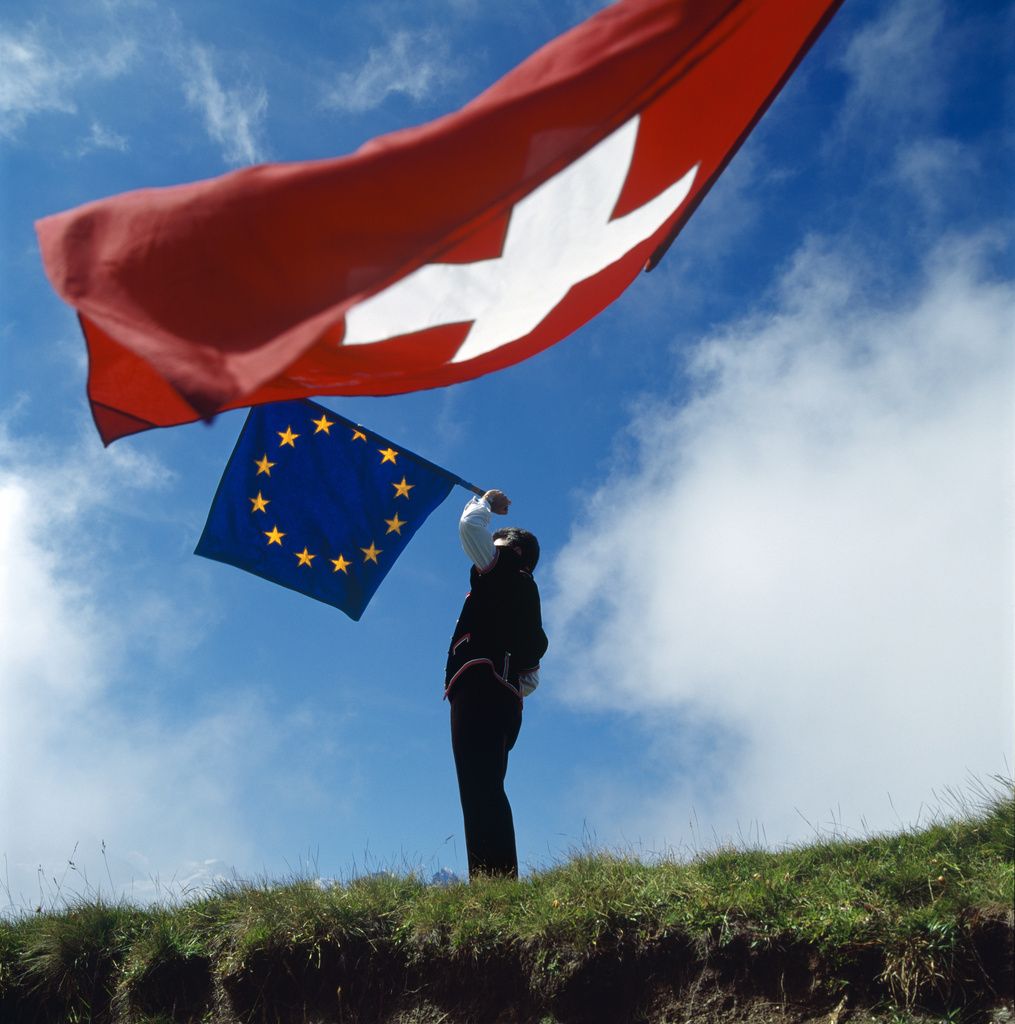
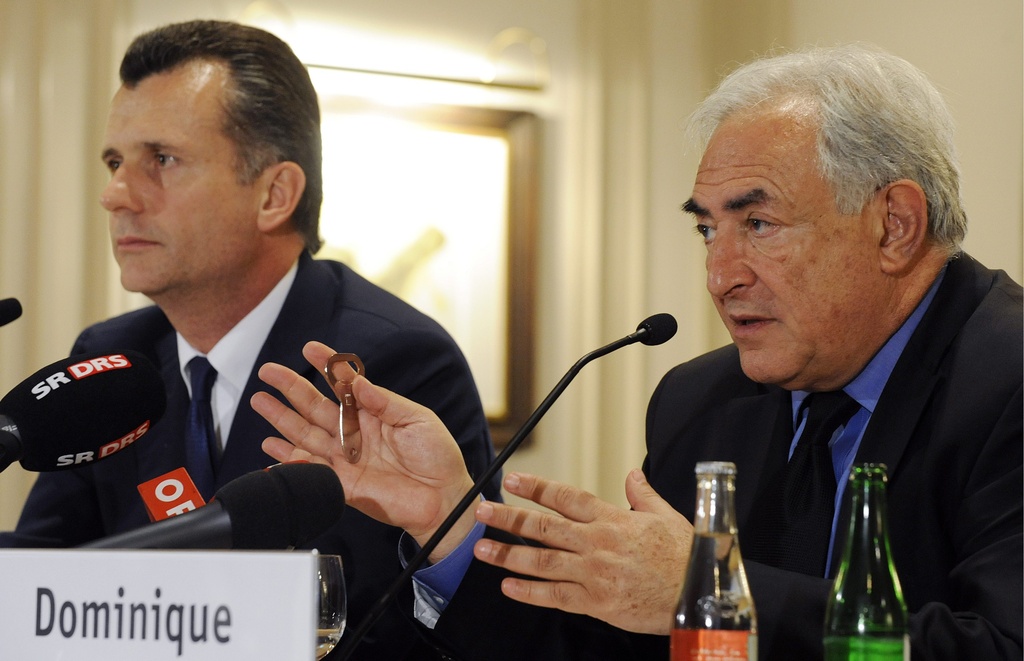
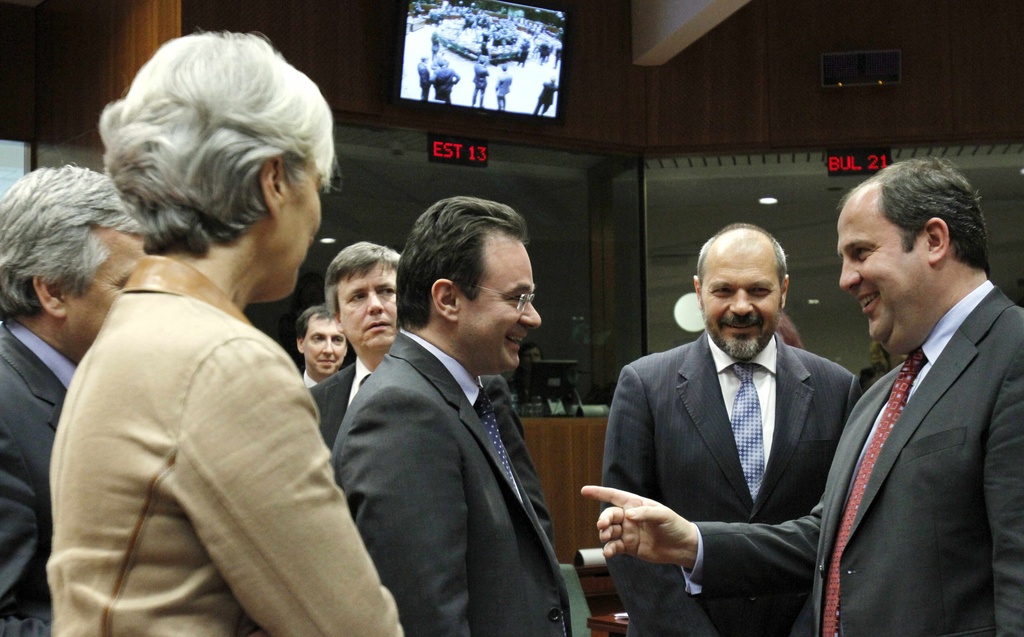
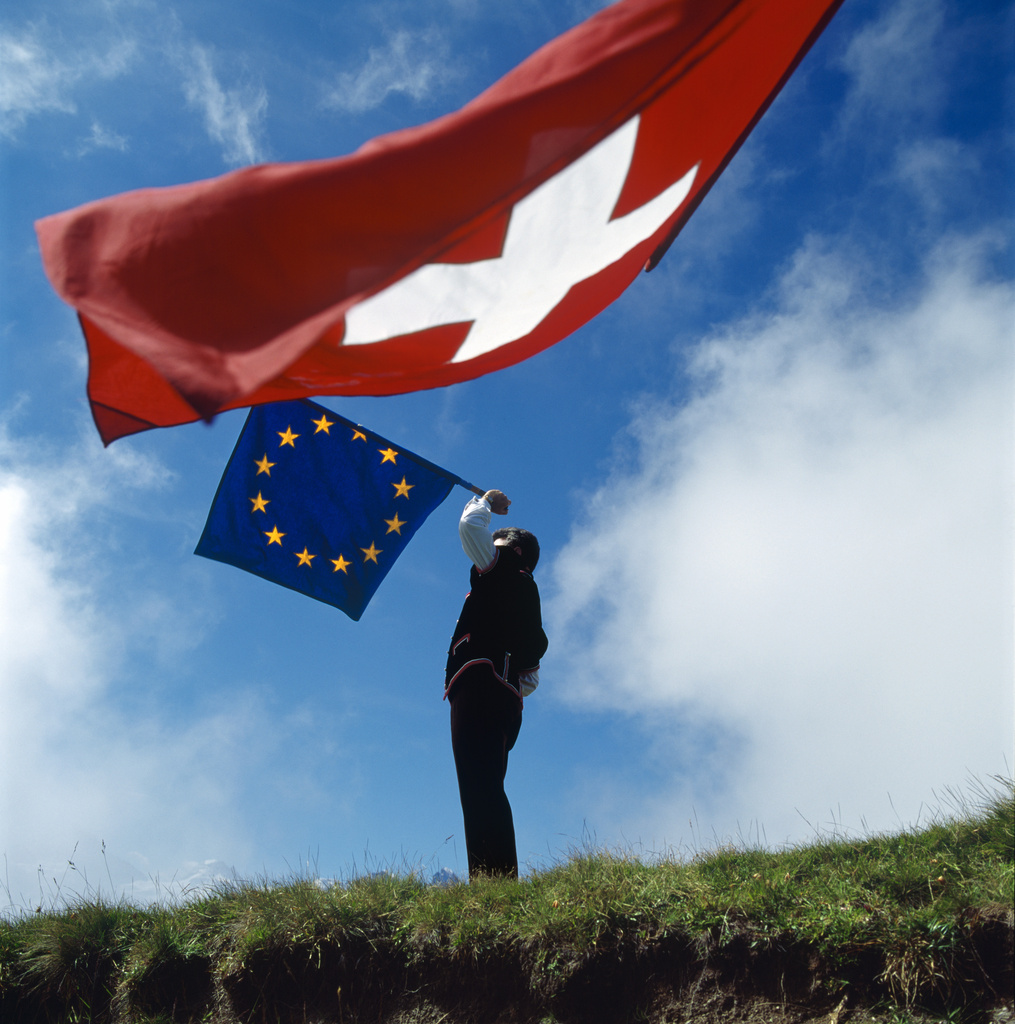
You can find an overview of ongoing debates with our journalists here. Please join us!
If you want to start a conversation about a topic raised in this article or want to report factual errors, email us at english@swissinfo.ch.